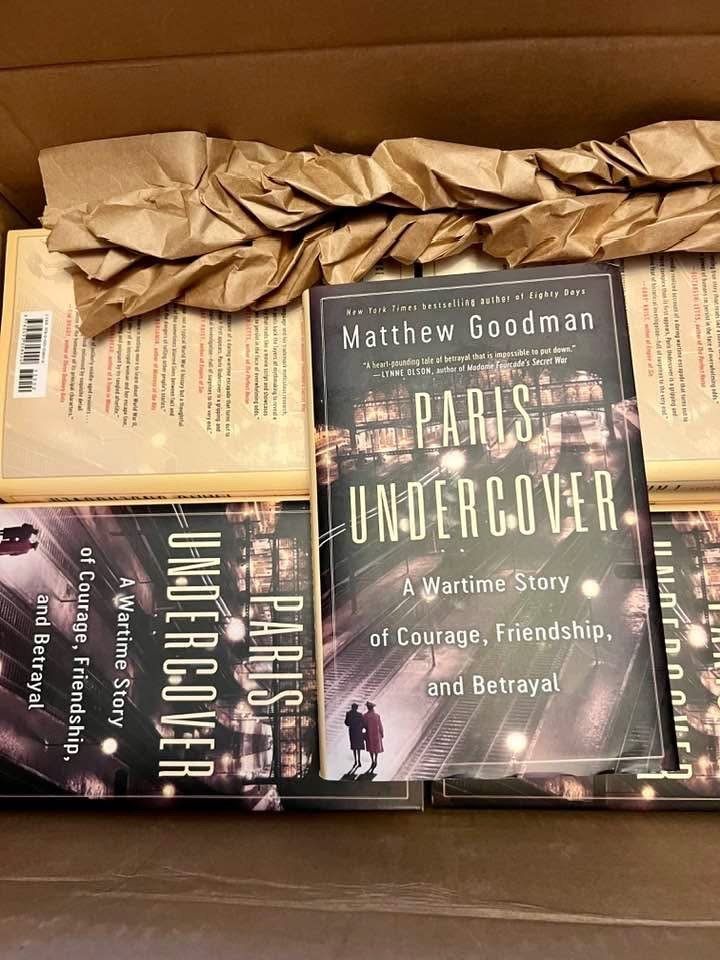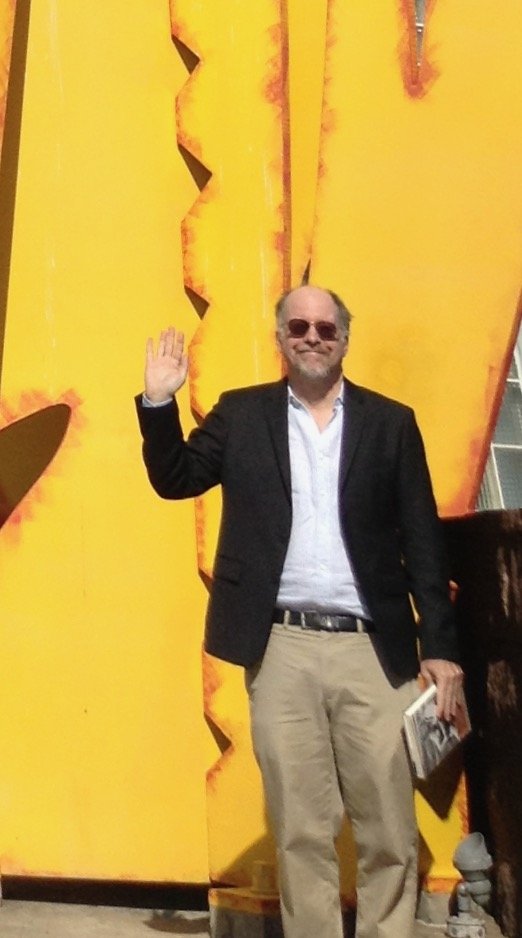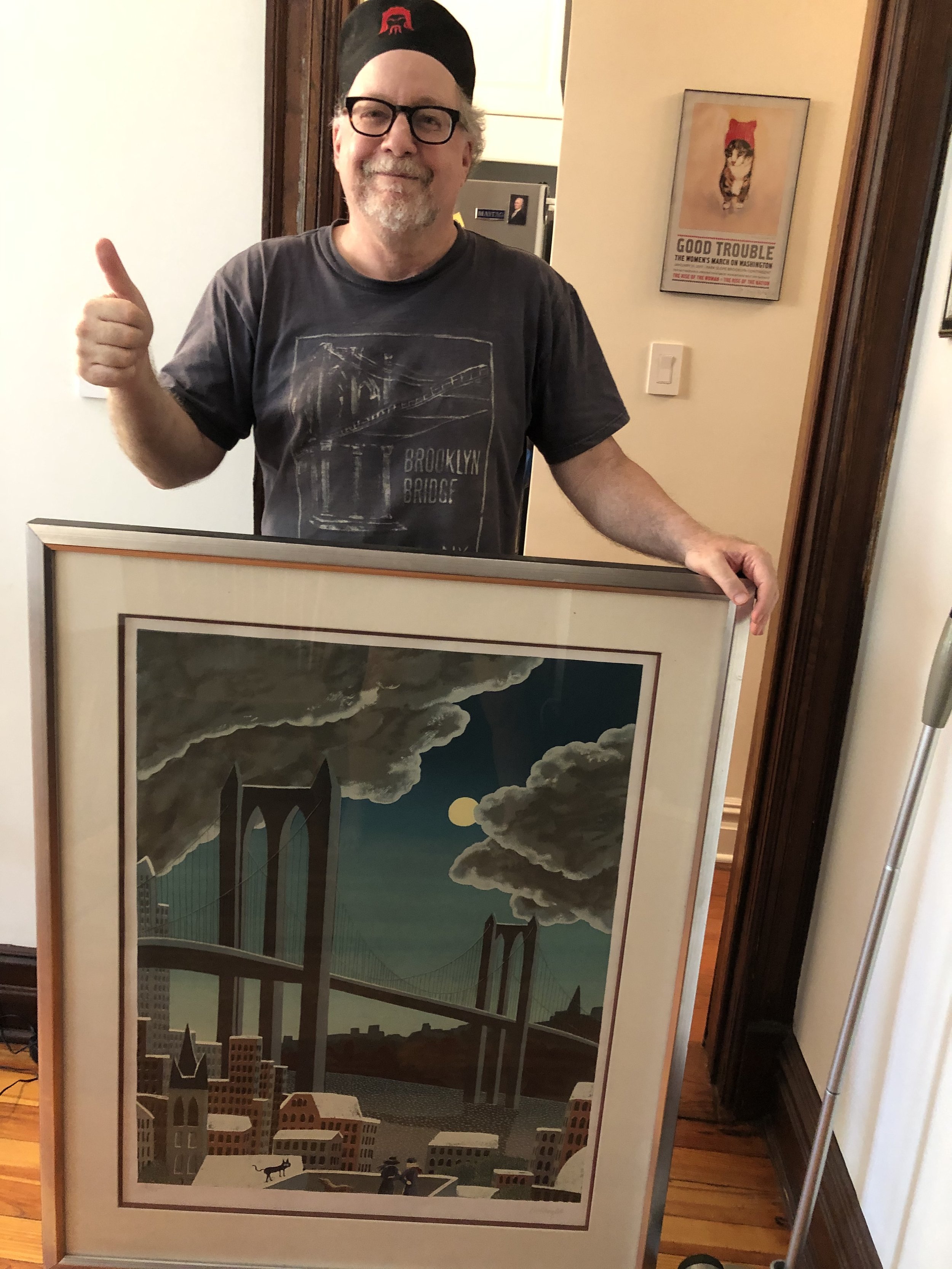Paris Undercover
Bestselling author Matthew Goodman has just published his latest brilliant work of non-fiction. Recently, a packed crowd gathered at the Community Bookstore in Brooklyn’s Park Swope neighborhood for the author’s book signing and official launch of Paris Undercover: A Wartime Story of Courage, Friendship, and Betrayal, published by Penguin Random House. It’s a book I have been eagerly anticipating, and one I knew would be well worth the wait.
Matthew has lived in Brooklyn all of his life and loves New York City. He has a way of writing about people and events that at one time were legendary but over the decades have been forgotten. The author spends five or six years doing incredibly in-depth research into his topics and is a master of weaving what he discovers into books that you cannot put down.
If I could have been in the Community Bookstore on February 4th, I’d have shared the following true story and serendipitous tale of how Matthew and I became friends. Early in 2013, I read his non-fiction book Eighty Days: Nellie Bly and Elizabeth Bisland’s History-Making Race Around the World. Here is the backstory to what became a journey that brought the author to Columbia, MO in October of 2013.
Earlier that year when snow covered the Hellebore Lenten Roses in our garden at Boomerang Creek, I dove into Goodman’s marvelously penned historical narrative after reading a review and noting its rich, geographic cover. Against an ocean blue background are photographs of Bly and Bisland—two intrepid 1880s women journalists with luggage in hand. A globe connects and divides them as an ocean liner steams through choppy waters.
Their challenge in November 1889 was to circumnavigate the globe and best the 80-day record achieved by Phileas Fogg in Jules Verne’s 1873 work of fiction, Around the World in 80 Days. Perhaps the two most famous women in the world during this highly publicized race, Bly and Bisland are largely forgotten today.
Halfway through the book I was powerfully captured by a passage describing Elizabeth Bisland’s reaction to a moonlight tour of the ancient cistern Tanks in the desert outside of Aden, Yemen. An email to Goodman ensued, and following several exchanges with the author at his home in Brooklyn, NY, I boldly asked if he would consider coming to Columbia to speak about Eighty Days—a book I was certain would capture the entire community, just as it had me. He said yes, and that October, the author spent four days in Columbia participating in public events relating to his book and the nature of women travelers and explorers then and now.
In November 2019, the publication of Goodman’s much anticipated next book, The City Game, led to plans for him to return to Columbia for another four days of community events. Sadly, Covid 19 made travel and social gathering impossible, and the event had to be cancelled. The City Game is the story of the legendary 1949-50 City College of New York basketball team that won both the NIT and NCAA national basketball championships in the same year. The following season, the team was surrounded by scandal due to point-shaving, a decision that ruined the lives of the players. The City Game is also the story of New York City itself and the culture, bribery and betting on college sports that was rampant in the city then. The book delves into the culture of the times and prescient issues about college sports today.
In 2019 while looking for an idea for his next book, Goodman came across a column in the Smithsonian Magazine about the true story of two long forgotten older women— and their heroic exploits during World War II.
Speaking about Paris Undercover at his book launch, Goodman said, “I was fascinated by this. I was transfixed by this because this is an amazing story. These two older women who were not the typical young, glamorous spies had done this amazing thing, risking their lives to do it.”
A Brooklyn reporter interviewing Goodman wrote “The book uncovers the true story of Etta Shiber’s 1943 memoir Paris Undercover. The memoir is about the heroic actions of two unlikely middle-aged friends and roommates—Etta, an American-Jewish widow, and Kate “Kitty” Bonnefous, a British divorcée. The duo led a quiet life when the Nazis invaded the “City of Lights” in 1940. Shiber and Bonnefous became part of the resistance and created an escape line, rescuing dozens of Allied soldiers. In November 1940, both were arrested and imprisoned. In 1942, Etta returned to the United States after a prisoner swap while Kate, who initially was sentenced to death, spent the rest of the war in a Nazi prison.”
In Goodman’s “Acknowledgements” at the end of the book, he writes, “Much of the research for this book was conducted at the time of quarantine, when international travel was impossible, and as a result I relied heavily on numerous talented researchers in France, England, and Italy to navigate for me the often-byzantine byways of their local archives.”
Since our first meeting in 2013, I’ve visited Matthew while on trips to NYC, and a painting of ours of the Brooklyn Bridge now hangs in the Goodman’s home in Brooklyn. Our friendship is rooted in Matthew’s detailed research and the elegant poetic prose that fills his books. Paris Undercover. Très magnifique!






